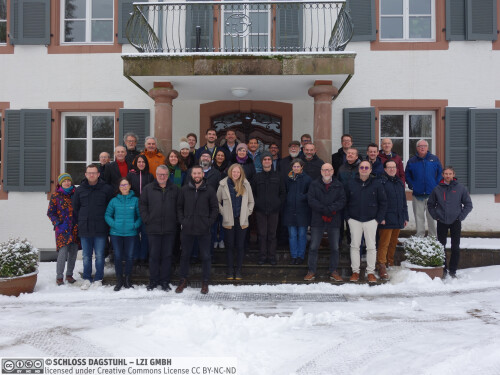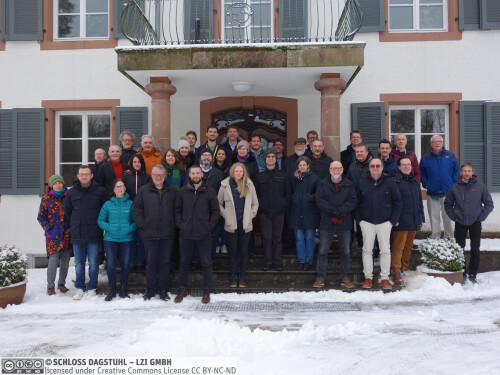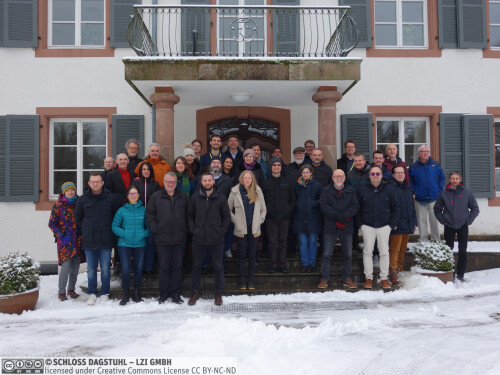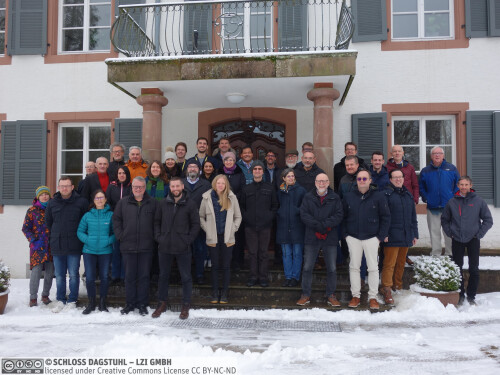Dagstuhl-Seminar 24031
Fusing Causality, Reasoning, and Learning for Fault Management and Diagnosis
( 14. Jan – 19. Jan, 2024 )
Permalink
Organisatoren
- Alessandro Cimatti (Bruno Kessler Foundation - Trento, IT)
- Meir Kalech (Ben Gurion University - Modiin, IL)
- Maria Krantz (Helmut-Schmidt-Universität - Hamburg, DE)
- Ingo Pill (Silicon Austria Labs - Graz, AT)
Koordinator
- Alexander Diedrich (Helmut-Schmidt-Universität - Hamburg, DE)
Kontakt
- Marsha Kleinbauer (für wissenschaftliche Fragen)
- Jutka Gasiorowski (für administrative Fragen)
Gemeinsame Dokumente
- Dagstuhl Materials Page (Use personal credentials as created in DOOR to log in)
Programm
The goal of this Dagstuhl Seminar is to provide an interdisciplinary forum to discuss the fundamental principles of fault management and diagnosis, bringing together international researchers from the fields of symbolic reasoning, machine learning, and control engineering. The seminar plans to identify an integrated framework to harmonize problems and algorithms from the different fields, as well as ideas for novel, integrated solutions; and to produce a comprehensive agenda for future research.
Cyber-Physical Systems (CPSs), i.e. systems in which mechanical and electrical parts are controlled by computational algorithms, are not only continuously increasing in size and complexity, but they are also required to operate in evolving and uncertain environments, subject to frequent changes and faults. Detecting and correcting such faulty behavior is a highly complex task that needs the help of computational algorithms. The constant advances in sensing technology and computational power, as well as the increase in data recording options, enables and also requires us to rely more and more on methods from Artificial Intelligence (AI) for these tasks, i.e. symbolic AI such as planning and reasoning engines, as well as subsymbolic AI like Machine Learning (ML). Sub-symbolic approaches are primarily used to detect symptoms; symbolic reasoning on the other hand provides diagnosis algorithms to identify root causes (from symptoms or observations) or reason about repairs. Furthermore, control engineering methods guide the system back to normal operation (based on the identified root cause). Since these methods come from different fields, they do not always work together in practice.
The research challenge at hand is to combine symbolic a-priori knowledge and learned data, as well as to develop an integrated concept taking both symbolic and sub-symbolic approaches into account. How can a-priori knowledge be combined with data-centric, machine learning-based algorithms? Can we integrate a-priori knowledge such as background knowledge about functions, interfaces and operation modes into ML-algorithms to improve model performance? Can we use data to learn parts of the symbolic models? And can we develop new algorithms which are a synthesis of both worlds?
We invite researchers from symbolic AI (diagnosis), sub-symbolic AI (ML) and control engineering to develop a common notion of fault detection and fault handling tasks that takes also the practical needs from industry-scale problems into account. We aim to identify synergies between the research groups’ and practitioners’ expertise and experience, as well as to develop new algorithmic ideas.
 Alessandro Cimatti, Meir Kalech, Maria Krantz, and Ingo Pill
Alessandro Cimatti, Meir Kalech, Maria Krantz, and Ingo Pill
- Kaja Balzereit (Hochschule Bielefeld, DE)
- Gautam Biswas (Vanderbilt University - Nashville, US)
- Marco Bozzano (Bruno Kessler Foundation - Trento, IT)
- Elodie Chanthery (LAAS - Toulouse, FR)
- Alessandro Cimatti (Bruno Kessler Foundation - Trento, IT) [dblp]
- Marco Cristoforetti (Bruno Kessler Foundation - Trento, IT)
- Philippe Dague (University Paris-Saclay - Orsay, FR)
- Johan de Kleer (c-infinity - Mountain View, US)
- Alexander Diedrich (Helmut-Schmidt-Universität - Hamburg, DE)
- Kai Dresia (DLR - Hardthausen, DE)
- Jonas Ehrhardt (Universität der Bundeswehr - Hamburg, DE)
- Alexander Feldman (NextFlex - San Jose, US)
- Kenneth D. Forbus (Northwestern University - Evanston, US)
- Rene Heesch (Helmut-Schmidt-Universität - Hamburg, DE)
- Daniel Jung (Linköping University, SE)
- Lukas Moddemann (Universität der Bundeswehr - Hamburg, DE)
- Angelo Montanari (University of Udine, IT)
- Manfred Mücke (Material Center Leoben, AT)
- Edi Muskardin (Silicon Austria Labs - Graz, AT)
- Oliver Niggemann (Helmut-Schmidt-Universität - Hamburg, DE) [dblp]
- Ingo Pill (Silicon Austria Labs - Graz, AT)
- Gregory Provan (University College Cork, IE)
- Belarmino Pulido (University of Valladolid, ES)
- Josephine Rehak (KIT - Karlsruher Institut für Technologie, DE)
- Pauline Ribot (LAAS - Toulouse, FR)
- Martin Sachenbacher (Universität Lübeck, DE)
- Anika Schumann (IBM Research-Zurich, CH)
- Gerald Steinbauer-Wagner (TU Graz, AT) [dblp]
- Markus Stumptner (University of South Australia - Mawson Lakes, AU) [dblp]
- Anna Sztyber (Warsaw University of Technology, PL)
- Louise Travé-Massuyès (LAAS - Toulouse, FR) [dblp]
- Günther Waxenegger-Wilfing (Universität Würzburg, DE)
- Katinka Wolter (FU Berlin, DE) [dblp]
- Franz Wotawa (TU Graz, AT)
- Marina Zanella (University of Brescia, IT)
- Alois Zoitl (Johannes Kepler Universität Linz, AT)
Klassifikation
- Artificial Intelligence
- Machine Learning
Schlagworte
- Integrative AI
- Diagnosis
- Fault Detection and Management
- Cyber-Physical Systems
- Model-Based Reasoning





 Creative Commons BY 4.0
Creative Commons BY 4.0
